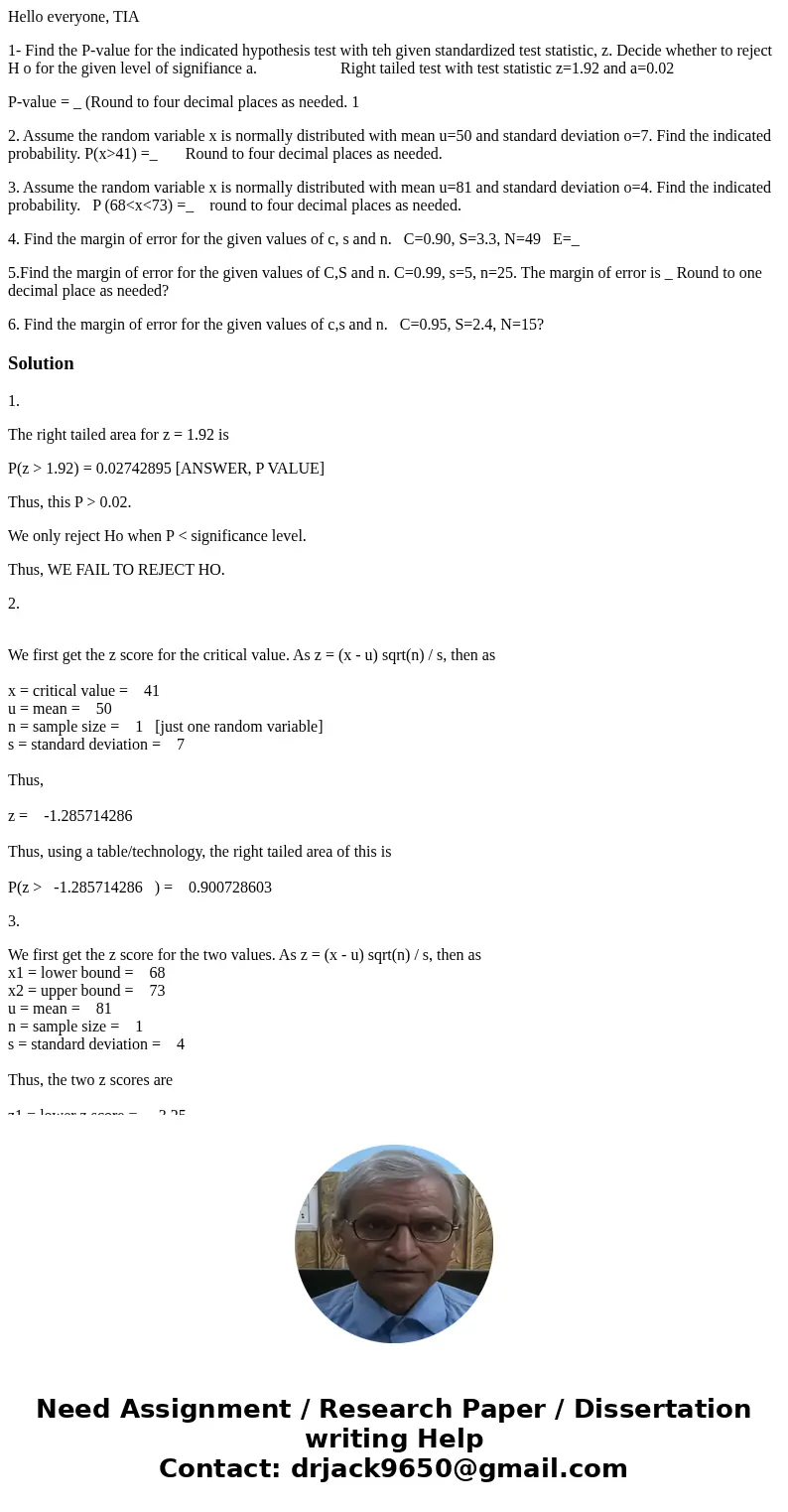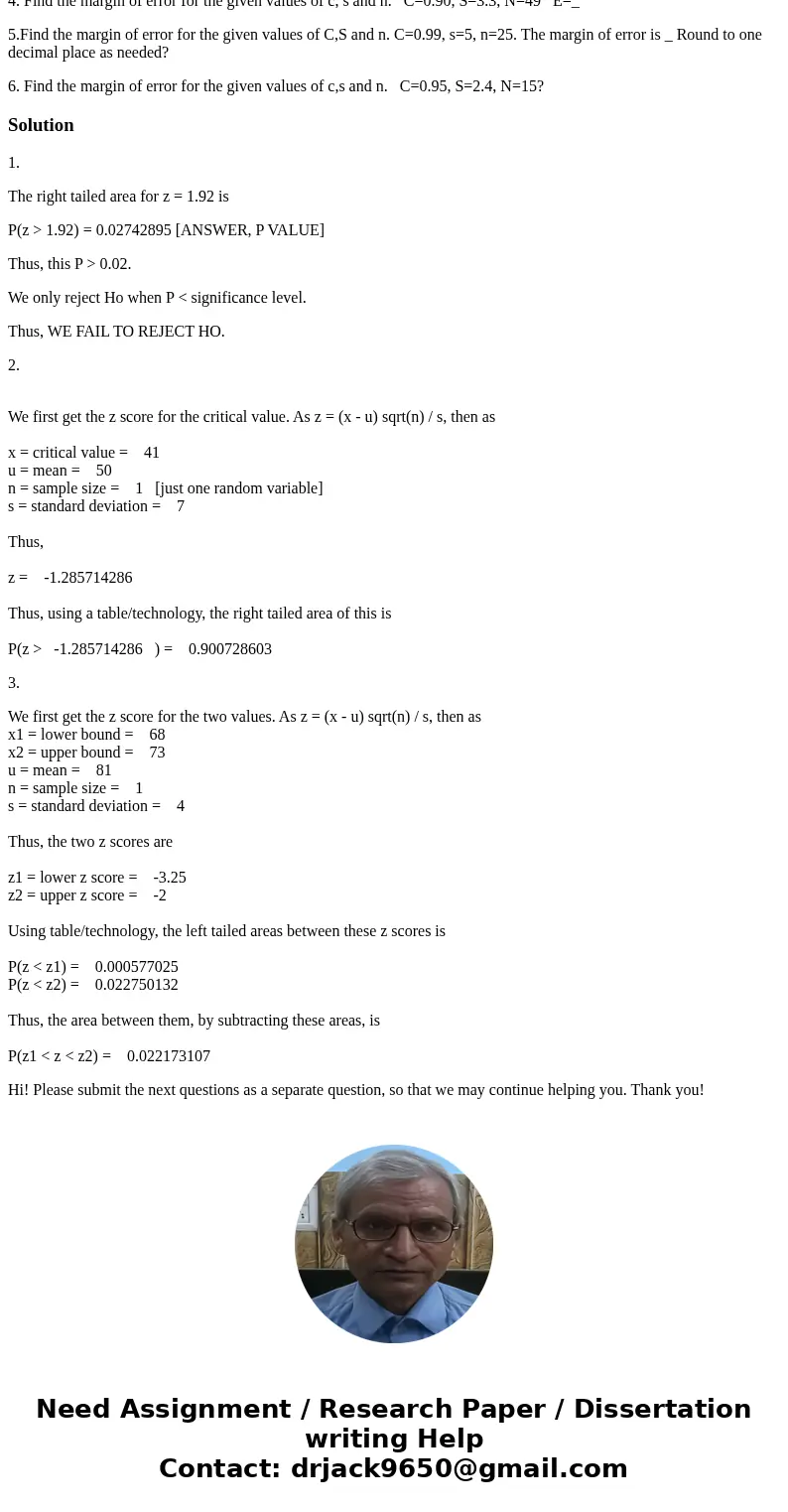Hello everyone TIA 1 Find the Pvalue for the indicated hypot
Hello everyone, TIA
1- Find the P-value for the indicated hypothesis test with teh given standardized test statistic, z. Decide whether to reject H o for the given level of signifiance a. Right tailed test with test statistic z=1.92 and a=0.02
P-value = _ (Round to four decimal places as needed. 1
2. Assume the random variable x is normally distributed with mean u=50 and standard deviation o=7. Find the indicated probability. P(x>41) =_ Round to four decimal places as needed.
3. Assume the random variable x is normally distributed with mean u=81 and standard deviation o=4. Find the indicated probability. P (68<x<73) =_ round to four decimal places as needed.
4. Find the margin of error for the given values of c, s and n. C=0.90, S=3.3, N=49 E=_
5.Find the margin of error for the given values of C,S and n. C=0.99, s=5, n=25. The margin of error is _ Round to one decimal place as needed?
6. Find the margin of error for the given values of c,s and n. C=0.95, S=2.4, N=15?
Solution
1.
The right tailed area for z = 1.92 is
P(z > 1.92) = 0.02742895 [ANSWER, P VALUE]
Thus, this P > 0.02.
We only reject Ho when P < significance level.
Thus, WE FAIL TO REJECT HO.
2.
We first get the z score for the critical value. As z = (x - u) sqrt(n) / s, then as
x = critical value = 41
u = mean = 50
n = sample size = 1 [just one random variable]
s = standard deviation = 7
Thus,
z = -1.285714286
Thus, using a table/technology, the right tailed area of this is
P(z > -1.285714286 ) = 0.900728603
3.
We first get the z score for the two values. As z = (x - u) sqrt(n) / s, then as
x1 = lower bound = 68
x2 = upper bound = 73
u = mean = 81
n = sample size = 1
s = standard deviation = 4
Thus, the two z scores are
z1 = lower z score = -3.25
z2 = upper z score = -2
Using table/technology, the left tailed areas between these z scores is
P(z < z1) = 0.000577025
P(z < z2) = 0.022750132
Thus, the area between them, by subtracting these areas, is
P(z1 < z < z2) = 0.022173107
Hi! Please submit the next questions as a separate question, so that we may continue helping you. Thank you!


 Homework Sourse
Homework Sourse